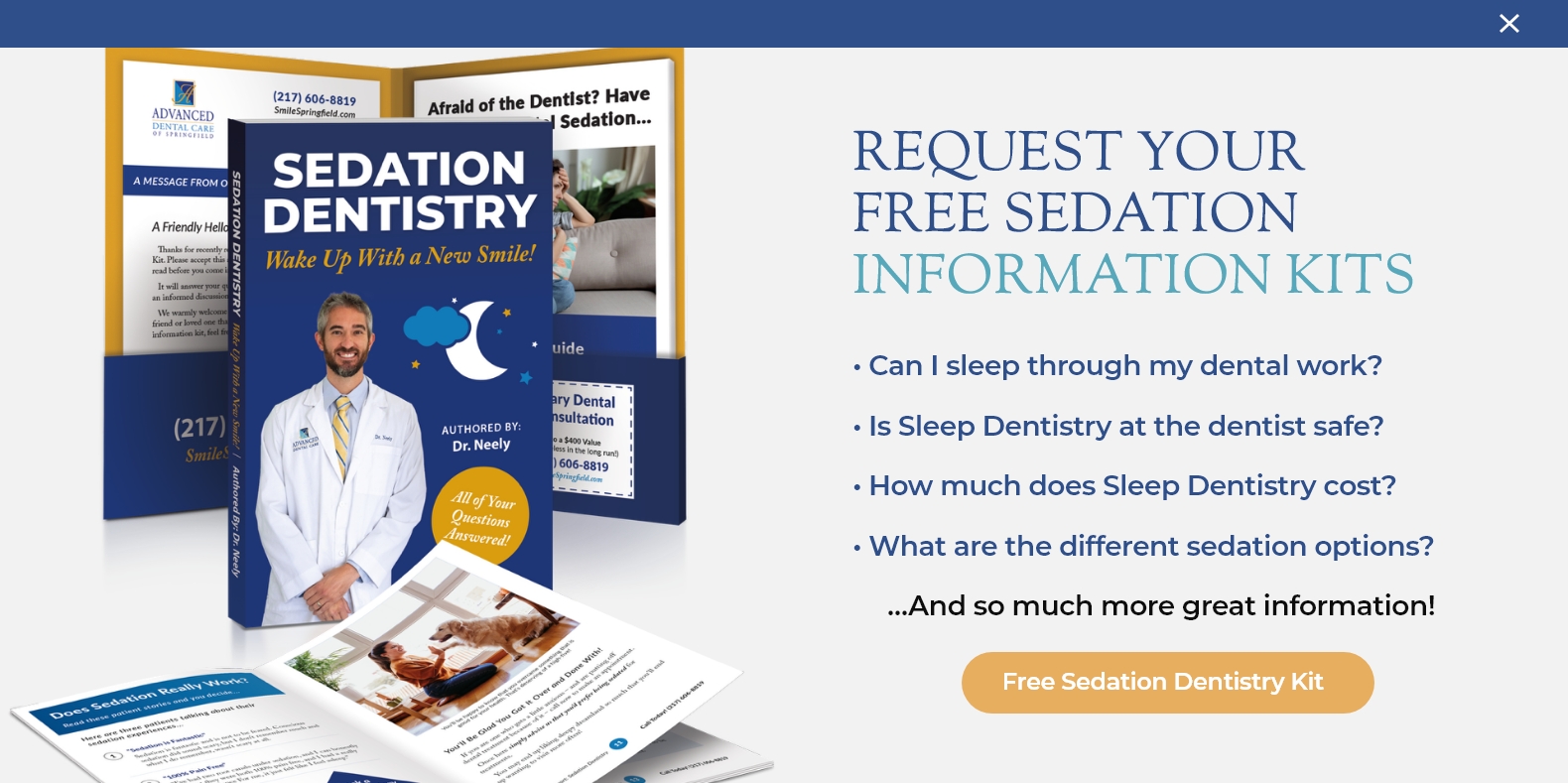Sedation Dentistry Springfield
Providing Stress-Free Dental Care
Going to the dentist is an extremely nerve-wracking experience for many patients. At Advanced Dental Care of Springfield, we want you to be comfortable in every way, at every moment of your appointment, so if you need a little help to relax in the chair, we’re happy to provide sedation dentistry.
Whether you’re only a little anxious or completely terrified of receiving oral healthcare, our sedation dentist can help calm your mind and protect you from pain using the techniques outlined below. Sedation dentistry is also for people who gag easily or have difficulty getting numb for dental treatment. Would you like to use sedation at your next appointment? Contact us today to explore your options.

What is Sedation Dentistry?
Sedation dentistry is a unique solution that allows individuals who struggle with dental anxiety to receive the necessary oral healthcare that is essential for avoiding cavities, gum disease, infections, and dental damage. With millions of Americans missing out on these important services because of fear, anxiety, and stress, sedation creates a more relaxing and comfortable experience so that dentists can administer treatment, and patients can improve their oral health while fully relaxed and at ease.
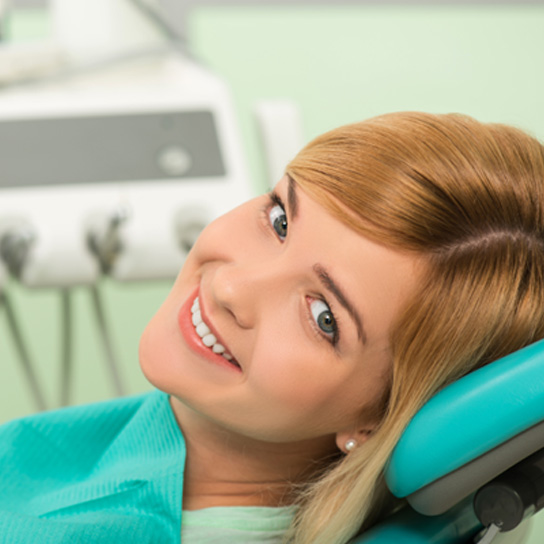
Who Can Benefit from Sedation Dentistry?
Only a consultation with a member of our dental team will determine if you are a good candidate for sedation dentistry; however, if you show any signs of the following, there is a good chance you will be cleared for treatment:
- You had a bad experience at a previous dentist’s office
- You have a physical disability that makes it hard to sit still for prolonged periods
- You require multiple treatments to be performed in a single visit
- You are preparing for a complex or invasive procedure
- You have mild to severe dental anxiety
- You have difficulty with the sights, sounds, and smells of a dentist’s office
- You have a sensitive gag reflex
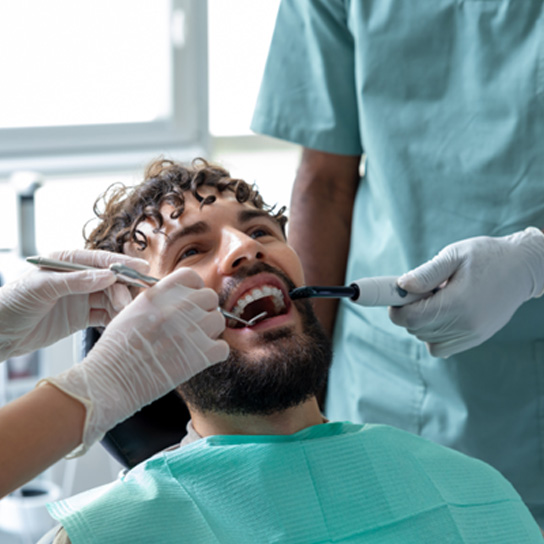
Benefits of Sedation Dentistry
When receiving sedation dentistry at our dental office in Springfield, you will discover the immense benefits these solutions can provide. Not only will your dentist be able to work more efficiently, but you’ll experience pain-free appointments, little to no anxiety or fear, and you’ll be able to receive the care your smile needs to remain healthy and beautiful year-round. Of course, these are just a few of the many advantages you can expect with sedation dentistry. Continue reading to learn more!
Efficient Dental Treatment

If you feel anxious about your appointment, you may find yourself shifting or moving more than usual, which can make it challenging for your dentist in Springfield to complete your treatment efficiently. With our calming sedation options, we can work smoothly without concern for discomfort or movement. Solutions like nitrous oxide, oral conscious, and IV sedation will ensure you remain fully relaxed and comfortable so you can receive the best possible care during your visit.
Pain-Free Appointments

Is the fear of pain preventing you from keeping up with your preventive dental care? Rest assured – sedation dentistry can help ease your anxiety! It’ll allow you to enter a deeply relaxed state, ensuring a pain-free experience. Before starting your treatment, we’ll ensure you are completely comfortable and do our best to keep you that way until the end of your visit.
Reduced Anxiety and Fear

Dental anxiety is a very real problem that affects patients of all ages. Our team understands these concerns and is more than happy to help. With sedation, your worries will fade the moment it takes effect. Instead of dreading your appointment, you’ll enter a calm, dream-like state. You’ll be relaxed yet responsive, allowing you to receive the care you need without unnecessary stress or anxiety.
Calming Your Gag Reflex

A strong gag reflex can make dental treatment uncomfortable and challenging. To ensure a smooth and stress-free experience, sedation can help relax these reflexes. Whether you're undergoing a complex procedure or simply struggling with routine checkups and cleanings, sedation can make your visit much more comfortable.
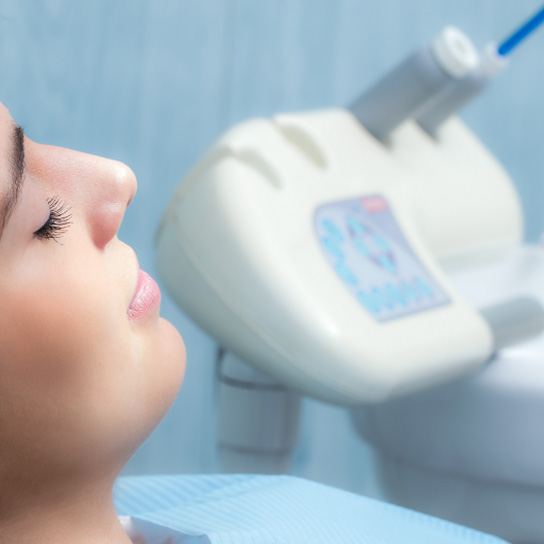
Oral Conscious Sedation
Do you experience pretty severe dental phobia? If so, oral conscious sedation can finally make it easy for you to take care of your teeth. Your dentist will prescribe you a pill to take about an hour before you’re scheduled to come to see us so that by the time you actually sit in the chair, you’ll already be deeply relaxed. You’ll remain awake the entire time, but your appointment will fly by quickly, and you’ll likely have little to no memory of it afterward.
What Is Oral Conscious Sedation?

Oral conscious sedation is generally recommended for adults with anxiety, fear, or something else that makes sitting in the dental chair uncomfortable. There aren’t any needles or facemasks involved. Instead, you are prescribed a small pill to take an hour before your appointment. By the time you dental to the dental office, you will be perfectly relaxed and ready for your treatment.
How Does Oral Conscious Sedation Work?

Once the effects of the pill kick in, you will feel deeply relaxed. Some patients don’t even have any memory of their visit afterward. However, you will remain conscious throughout your whole treatment, so you will still be able to follow the instructions of your dental team and answer questions they may have. Unlike nitrous oxide sedation, the effects of oral conscious sedation can linger, so you won’t be able to drive home after your treatment. You will need to arrange for a trusted friend or family member to take you to and from your appointment.
Are You a Good Candidate for Oral Conscious Sedation?

Oral conscious sedation is an excellent option because it is effective and doesn’t involve masks or needles. It is usually ideal for those who:
- Regularly cancel appointments due to anxiety
- Are undergoing multiple procedures at once
- Have difficulty sitting still
- Have negative previous dental experiences
- Have dental anxiety/phobia
- Have a sensitive gag reflex
- Have a long dental treatment
- Struggle to become numb from anesthesia
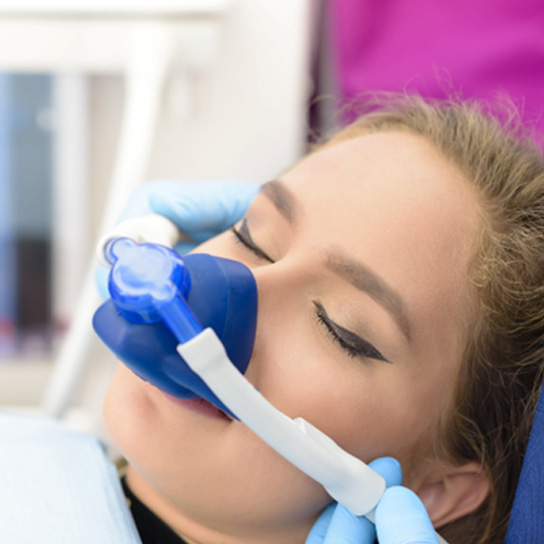
Nitrous Oxide
Need something to just “take the edge off” of your dental nerves? If the answer is “yes,” then talk to our Springfield dental team about adding nitrous oxide to your treatment plan! If you’re not quite sure what this is, then there’s a good chance that you’ve heard this calming type of sedation called something else: laughing gas. To learn more about it, and who it can help, read on or schedule an appointment with us!
Who is a Good Candidate for Nitrous Oxide?

Since nitrous oxide is so mild, it’s safe for many patients, including those who struggle with mild dental-related anxiety, sensitive gag reflexes, and head/neck/jaw pain in the treatment chair. That said, there are some cases where we don’t recommend it, like if you’re expecting or you have a condition, like asthma, that makes it difficult for you to breath through your nose. Ultimately, the decision of whether or not nitrous oxide can be added to your treatment plan will be determined by you and your dentist during your initial appointment.
How Does Nitrous Oxide Work?
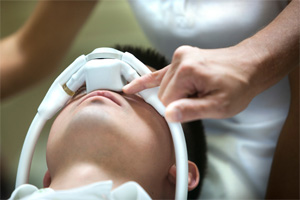
With nitrous oxide sedation, all you’ll need to do is inhale a colorless, odorless gas through a small nasal mask – you’ll begin feeling the calming effects within a matter of minutes! Many patients describe it as a feeling of safety, relaxation, and even euphoria. Some are so at-ease that they even fall asleep in the treatment chair. If that happens (you doze off in the treatment chair), don’t worry – you can rest peacefully, and we will wake you when we’re done providing the necessary care.
Aftercare for Nitrous Oxide
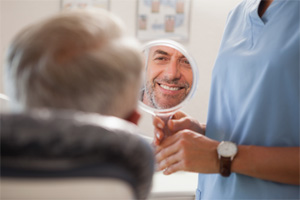
While we work to maintain, restore, or enhance your smile, the mask will stay in place, allowing you to continually breathe the colorless, odorless gas. Once we’re done, we’ll remove the mask, and the effects will go away almost instantly. At this time, we will share any aftercare instructions we have regarding the treatment you received, like rinsing periodically with warm saltwater or not eating anything until the numbing agent has worn off. Since nitrous oxide doesn’t come with any long-term side effects, like drowsiness, you can drive yourself home from your appointment and resume everything else on your to-do list without any worry too!

IV Sedation
Has your fear of the dentist prevented you from getting regular appointments for years? Do you require an extensive amount of dental work? IV sedation is the strongest and fastest-acting sedation method we offer. A powerful sedative will be administered straight into your bloodstream via a small injection in your hand or arm, and within moments, you’ll sink into deep relaxation. The best part about this approach is that your dentist can actually adjust your sedation level in real-time to make sure you’re completely safe and comfortable from moment to moment.
What Is IV Sedation?

IV sedation is administered intravenously. This allows the effect to kick in more quickly than other forms of sedation. During this process, the patient remains conscious, but they don’t usually remember much from the procedure. This is because the patient is in a deep state of relaxation – even more than nitrous oxide or oral conscious sedation can provide. We monitor your vitals at all times, to ensure that you are safe. Since the effects of IV sedation take some time to wear off, it’s important to arrange for a trusted friend or family member to drive you home.
Who Is a Good Candidate for IV Sedation
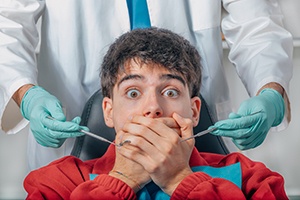
IV sedation is usually used for oral surgeries and long procedures. It can also help to lessen high levels of anxiety and phobias associated with the dentist. Additionally, people that have an overactive gag reflex, TMJ dysfunction (TMD), or other neuromuscular issues that may make it more difficult to sit in the dental chair for long periods of time can benefit from this type of sedation. Before your treatment begins, we will go over your anxiety levels, health history, and any medications that you are taking to ensure that IV sedation is the best option for you.
The Benefits of IV Sedation
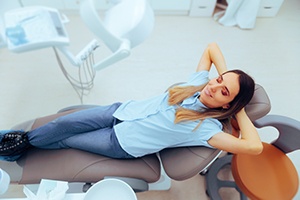
There are many benefits that you can experience by choosing IV sedation. Here are some of the most prominent ones:
- The effects take place very quickly because it is administered directly into the bloodstream.
- IV sedation allows patients with severe anxiety to seek dental treatment.
- We control the flow of medication, ensuring a constant state of relaxation.
- The deep state of relaxation the IV sedation provides helps to prevent additional stress-related memories related to the dental office.

What to Expect Before Getting Dental Sedation
If you are considering dental sedation before your next visit, there are a few things you can expect from our dental team. First, we will sit down to discuss your oral and overall health history. It’s important that we know about any serious conditions you have or medications you might be taking. We want to make sure that your appointment is seamless and as stress-free as possible, so if additional accommodations are required, we will ask during this time.

What to Expect After Dental Sedation
Depending on the type of sedation you receive, you may be free to resume normal activity following your appointment, or you might need someone to drive you home and monitor you until the sedation and anesthesia wear off. You can expect that when receiving a local anesthetic, you will remain numb for some time after your appointment. It’s essential that you do not attempt to eat, as you might accidentally harm your soft oral tissues or be unaware of additional damage you might be causing to your recently treated mouth.
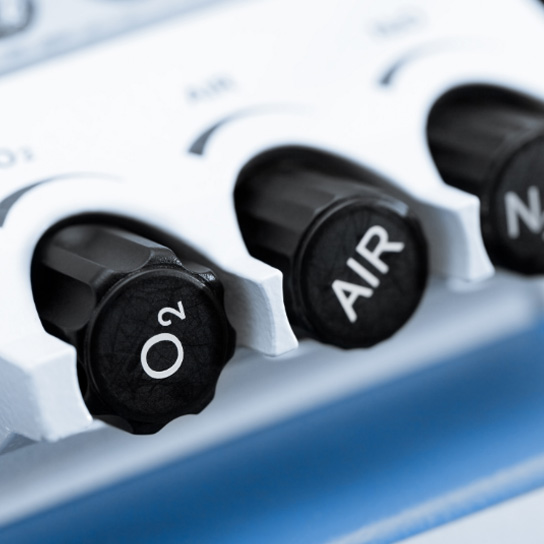
Sedation Dentistry FAQs
Dental sedatives can be incredibly useful for all kinds of patients, but they’re unfortunately a little bit misunderstood, which can make already nervous individuals reticent to give them a try. We believe that it’s important for our patients to be as educated as possible about the various types of care that we offer, including sedation dentistry.
We’ll tell you more when we meet you in person, but before then, here are answers to some of the most common questions that we get about dental sedatives.
What Does Dental Sedation Feel Like?
What sedatives will feel like depends on which one you use. Nitrous oxide sedation is commonly known as “laughing gas,” and as the name would suggest, it can make people feel a little bit giggly. You may also feel light, relaxed, and perhaps tingly.
On the other hand, oral conscious sedation and IV sedation are stronger and therefore cause a deeper sense of relaxation. Unlike nitrous oxide, you may feel “heavy,” and time could feel like it’s passing extraordinarily quickly. While they feel similar, IV sedation is the stronger of the two.
Is Sedation Dentistry Covered by Insurance?
Typically, no. Sedation dentistry is considered to be an elective in most cases, which means dental insurance companies won’t often pay for them.
However, they may make an exception if it’s determined that sedation is necessary to get treatment, like in the case of special needs patients. You may also get some insurance coverage if the treatment is complicated, like if you need multiple tooth extractions back-to-back.
The nature of dental insurance makes it difficult to make blanket statements about what will and will not be covered, so we’ll have to consult with your dental plan to help you get the most out of your benefits.
How Long Does Dental Sedation Last?
Again, this depends on the type of sedation that you’re receiving. Some sedatives, like nitrous oxide, wear off almost immediately after the administration of the drug has stopped. Others, like oral conscious sedation or IV sedation, will linger for a while after the procedure is complete.
In the case of the latter, you should refrain from operating heavy machinery for at least 24 hours after receiving sedation. And in any case, it’s usually a good idea to get someone to drive you to and from your dental appointment.
Does Dental Sedation Make You Sleep?
Dental sedatives are designed not to put you to sleep. This is so that you can listen and adhere to the dentist’s instructions for the duration of treatment. In some cases, the sedatives can make the memories of treatment a little fuzzy, so it may feel like you fell asleep even if you haven’t.
You may also be so relaxed during sedation that you fall asleep incidentally, but in that case, it’s possible for your dental team to gently nudge you awake.

